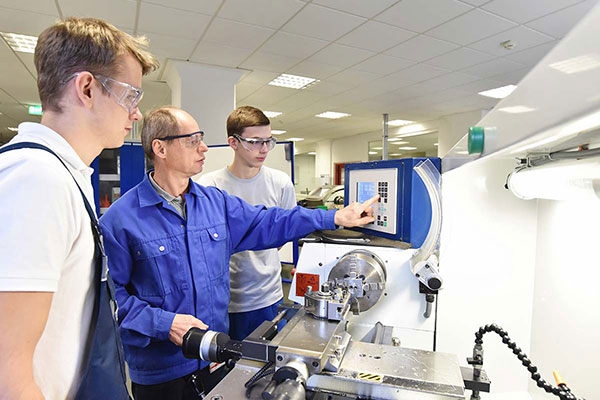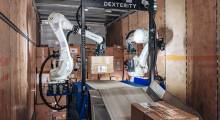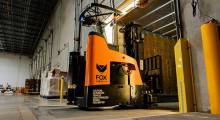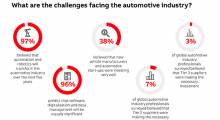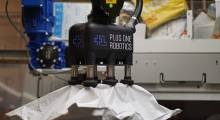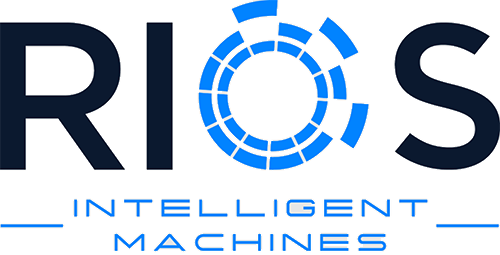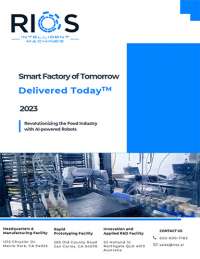Manufacturers in the United States account for almost 12% of the total output in the economy, according to a recent study by the National Association of Manufacturers.
Over the next decade, 4 million manufacturing jobs will likely be needed, and 2.1 million are expected to go unfilled if the country does not inspire more people to pursue modern manufacturing careers. Moreover, the cost of these missing jobs could potentially total $1 trillion in 2030 alone.
We are seeing a major effort underway by new technology companies to modernize this aging industry and incorporate a new class of AI-powered robots. Robotic solutions, such as those developed by RIOS, integrate within manufacturing and assembly operations, and serve organizations of all sizes, most favorably, small and medium-size manufacturers. Programs such as RaaS, Robots-as-a-Service, rapidly integrate within operations and allow funding for automation without financial barriers.
As automation becomes more prevalent, companies need a new breed of upskilled technicians to work on robotic workcells. Technicians will need to operate and repair robotic systems, have advanced troubleshooting skills, and basic software knowledge. Forward-thinking community colleges like the Bay Area Community Colleges offer robust programs in ARMM (Automation, Robotics, Mechatronics, Maintenance).
The community colleges’ goals are to provide their students with the relevant training to find well-paying careers, and through their employment, positively impact manufacturing and society overall. The colleges are actively training the next generation of skilled workers and want to ensure they can meet the technical goals of automation and meet the digital transformation requirements of the future workforce.
Dr. Mark Martin, the Regional Director of Advanced Manufacturing of the Bay Area Community Colleges, had an initial working session with RIOS to understand what technical skills need to be taught to our future workforce. Dr. Martin chose to engage RIOS as we are one of the leading companies that solves last mile automation challenges for a wide range of manufacturers with dexterous AI-powered robotic work cells.
Dr. Martin wants to ensure the colleges’ current curriculum is aligned with these new technologies and market requirements. Dr. Clinton Smith, CTO of RIOS, engaged in a technical discussion of robotic work cells and the future requirements of maintenance technicians. Ms. Kelly Kamlager, Sr. Director of Marketing of RIOS, joined in the discussion to provide context of the voice of the customer and market insights.
RIOS was able to provide helpful insights on specific technical skills needed for operating robotic work cells on automated assembly lines. Dr. Smith outlined that it will be important for technicians to have excellent critical thinking skills in troubleshooting, failure and root cause analysis.
Technical baseline IT skills will complement traditional industrial maintenance as more componentry is added, such as cameras, computers, and ability to interact in dashboards and command lines. Ms. Kamlager said these skills will be critical to keep automation in operation throughout the facility as more machines are updated and newer technologies become affordable and accessible. The trained workforce will have a great impact on the future for manufacturing companies.
We are pleased that Dr. Mark Martin of the Bay Area Community Colleges engaged RIOS as they prepare their students for the workforce of the future and meet the needs of manufacturing employers. In 2017, in the United States there were 248,039 firms in the manufacturing sector. Three-quarters of these firms have fewer than 20 employees.
An industry report from Deloitte additionally warns the worker shortage will hurt revenue, production and could ultimately cost the US economy up to $1 trillion by 2030. Skilled technicians will be important at all organizations, regardless of scale, to keep US manufacturing open for business as automation and robotic work cells gain sophistication and penetrate this large manufacturing sector.
Article topics
Email Sign Up

